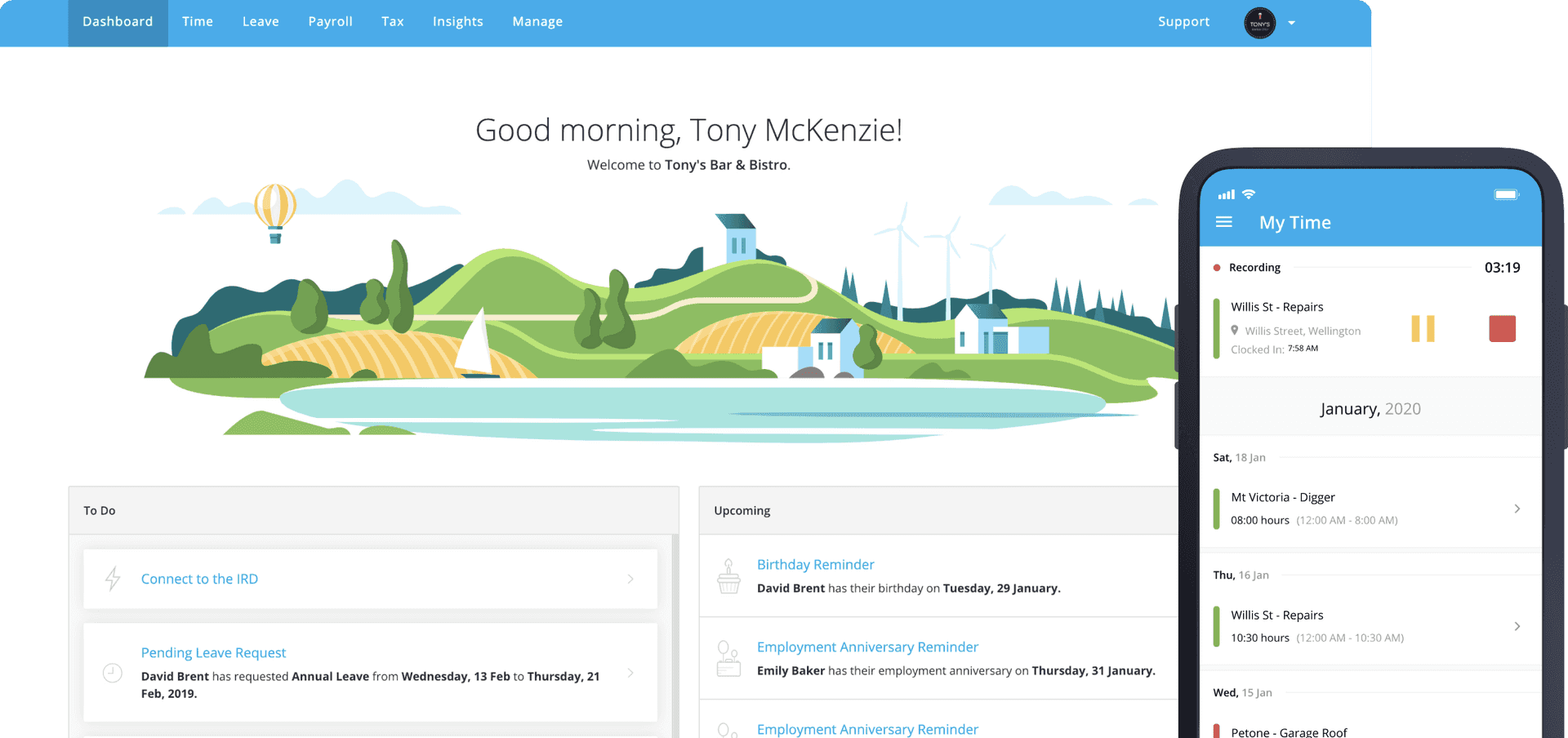Payroll & Finance
2020 Minimum Wage and Employment Law Changes
March 8, 2020
As always, with the new financial year just around the corner there are a handful of legislative changes that affect employers on the horizon.
Compared to recent years, the 1 April 2020 NZ payroll changes are fairly minor, but it’s important employers know what’s changing and whether they’re affected.
Minimum wage changes - April 2020
On 1 April 2020 the adult minimum wage will increase from $17.70 to $18.90.
The starting-out and training wages will increase to $15.12 per hour (80% of the adult minimum wage).
If you have employees on the minimum wage, starting-out wage or training wage, make sure you update their pay rate in your payroll system. If you’re using PayHero, it’s easy to change pay rates, even in the middle of a pay period. Check out the details here.
Paid parental leave changes - July 2020
On 1 July 2020 Paid Parental Leave will increase from 22 weeks to 26 weeks.
Find out more about managing parental leave in PayHero.
Student Loan and ACC Thresholds
On 1 April 2020 the annual student loan repayment threshold increases from $19,760 to $20,020. This means that the weekly pay-period repayment threshold for people repaying their student loans will increase from $380 to $385.
The maximum annual ACC threshold will also increase from $128,470 to $130,911.
PayHero will automatically take care of these changes for you. However, if you have direct debit payments set up for salaried employees you’ll need to change the amount to account for the small change in their take-home pay!
Personal grievances in triangular employment arrangements
This one is pretty niche and really only affects the labour hire, temp and contracting industries or situations where an employee is on secondment with another organisation.
From 27 June 2020 (or earlier if a date is appointed by the Governor General), employees will be able to raise a personal grievance in a triangular employment relationship.
Triangular employment is a relationship where an employee is employed by one employer, but working under the control and direction of another business or organisation.
Up until now, employees can only bring a personal grievance against their direct employer. Any third party they are working for could not be added to the claim.
Once the new legislation comes into force, it will mean third parties can join the other business or organisation to a personal grievance claim, where the behaviour or actions of the third part contributed to the problem.






